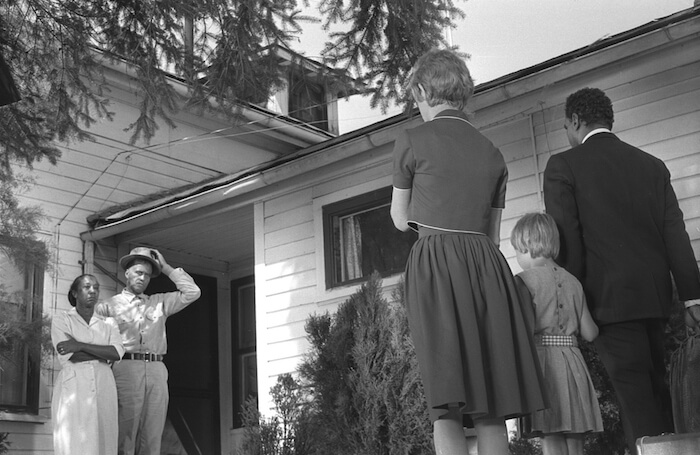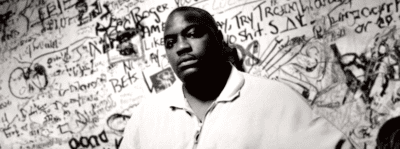The Best Old Movies on a Big Screen This Week: NYC Repertory Cinema Picks, October 19-25

One Potato, Two Potato (1964)
Directed by Larry Peerce
A pained gem of a movie, as confrontational to behold now as it must have been for its (tiny) audience upon release in 1964. Frank (Bernie Hamilton) strikes up a lonely romance with Julie (Barbara Barrie), a single mother in the small town of Howard (“population 17,328”). He’s black, she’s white, and their love is the real thing; ergo, even after getting married and having a baby boy together, it’s only a matter of time before her ne’er-do-well ex, Joe (Richard Mulligan) returns to Howard, looking to claim custody of his and Julie’s daughter Ellen. One Potato sifts elements of the courtroom and kitchen-sink dramas to probe competing hatreds: bent over a decanter, Joe mumbles that “A man doesn’t really know himself until a thing like this happens—and what he finds, it may stink like a sewer, but…” Mulligan’s sweat-wracked, hambone performance only serves to lopside the audience further in Frank and Julie’s favor (not difficult), while Frank has internalized the casual racism of suburban America so deeply that it’s intractable.
Hamilton and Berrie’s performances are what take Peerce’s movie beyond roughshod curio status, their indignities made uncanny by the more conventional filmmaking flourishes: with its fluttering string-winds section combo, Gerald Fried’s score feels quaint and insufficient when, say, a white cop harasses Frank and Julie during one of their long walks home. Frank’s parents (played by Robert Earl Jones and Vinette Carroll) aren’t just wary; by Hollywood standards they’re radical, assuming outright that their son’s relationship with Julie can only lead to heartbreak. Expectedly for reality but less so for the silver screen, Peerce’s film holds their argument—and the ending clangs with abrupt, sobering discord. This is must-see “issue cinema” from the forefront of the Civil Rights Era, daring in its proposition—still valid—that too many ordinary people get hurt while waiting for garden-variety mores to change. Steve Macfarlane (October 21-27 at the Metrograph; showtimes daily)
You might also like 























